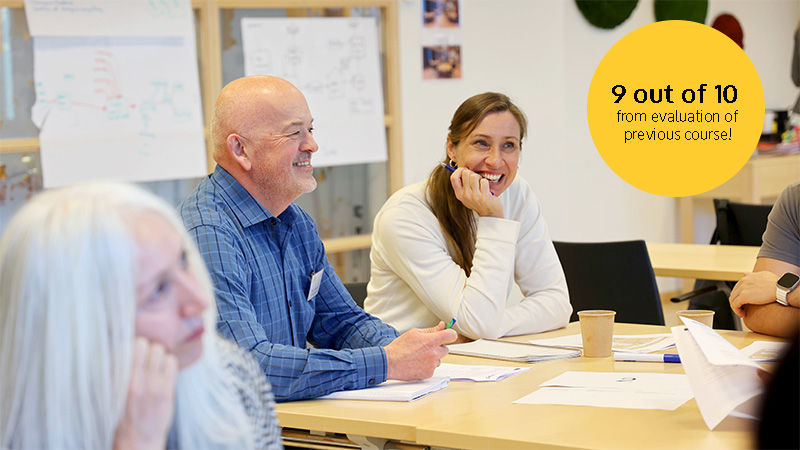Spotlight on Swedish Energy Agency
Since 2016, the center has a close collaboration with seven Swedish government agencies. They meet on a regular basis to share experience and build common knowledge in the life cycle field. These authorities play important roles in shaping future policies and legislation, and off course we are curious about how they deal with life cycle thinking.
Swedish Energy Agency is the second government agency we put spotlight on, which is funding the large project Swedish platform for the life cycle perspective, run by the center.
How would you describe your organization’s work with life cycle related issues?
— Swedish Energy Agency is one of the Swedish government agencies (subordinate to the Ministry of the Environment and Energy) that has made a joint declaration of intent to reach Agenda 2030. With a focus on supply and use of energy in society, we work for a sustainable energy system. Today, the life cycle perspective is central in our operations and strategies and we support several programs where resource efficiency and a life cycle perspective (LCP) are crucial factors.
— We work in accordance with ISO 14001 for environmental management systems where the life cycle perspective is central. The work on public energy systems and climate studies includes sustainability criteria and life cycle assessments.
Can you give some examples of recent achievements within the life cycle field?
— A large achievement is the funding of the large project Swedish platform for the life cycle perspective, which mission is to spread and integrate the life cycle perspective into processes and decision-making in companies and society and stimulate innovation. (The project is run by Swedish Life Cycle Center.)
— Several Research & Innovation (R & I) programs of the Swedish Energy Agency deal with the life cycle perspective within their respective areas, thereby funding various R & I projects in the LCP area. Examples of issues included in these projects are methodology development, classification systems and interpretation standards, analysis of LCP for renewable fuels, materials and products.
— We participate in the development of product rules (Ecodesign), energy labelling and testing. We also take government assignments, for instance linked to the development of sector strategies where the consumption perspective is an important aspect.
— Over the years, we have worked nationally and internationally, including with standardization and product rules for environmental and climate considerations in which LCP is central.
Which challenges or problems do you face today?
— Our biggest challenge right now is to spread the life cycle information to a broader audience and to affect business decisions (Life Cycle Management). Monetary valuation and internationalization are two other key areas.
Why is the life cycle field important?
— Changes need to be made on several levels. New business models need to be developed, purchasing need to be made based on life cycle data, large business decisions need to be based on accurate data of environmental damage. That is why monetary valuation and life cycle management are important.
What are the most valuable outcomes of your collaboration with Swedish Life Cycle Center?
— Thanks to Swedish platform for the life cycle perspective it is possible to gather a crucial knowledge base within the life cycle field. With extensive competence within one network we can more easily reach out with new research solutions and life cycle knowledge.
Examples of projects funded by Swedish Energy Agency
- P 46774-1 Demonstrationsprojekt livscykelanalysberäkningar
- P 39120-1 Integrerad utvärdering av fordonsbränslen med hållbarhets LCA – sociala och miljömässiga konsekvenser i ett livscykelperspektiv
- P 39598-1 Anpassad LCA för lägre växthusgasutsläpp från biodrivmedel
- P 40766-1 Utforska användningen av LCA i transitionsstudier av produktionsteknik av biobränsle
- P 40768-1 Utsläpp från biodrivmedel ur ett LCA-perspektiv
- P 43923-1 En marknadsbaserad ansats för att tolka och jämföra LCA- och EPD-information
- P 43917-1 Öppet klassningssystem som styrmedel för resurs- och energieffektiva byggnader
Short facts:
In collaboration with the center since: 2016
Main contact person: Dag Lundblad
Read more: http://www.energimyndigheten.se/
-
Press Contact:Dag Lundblad

